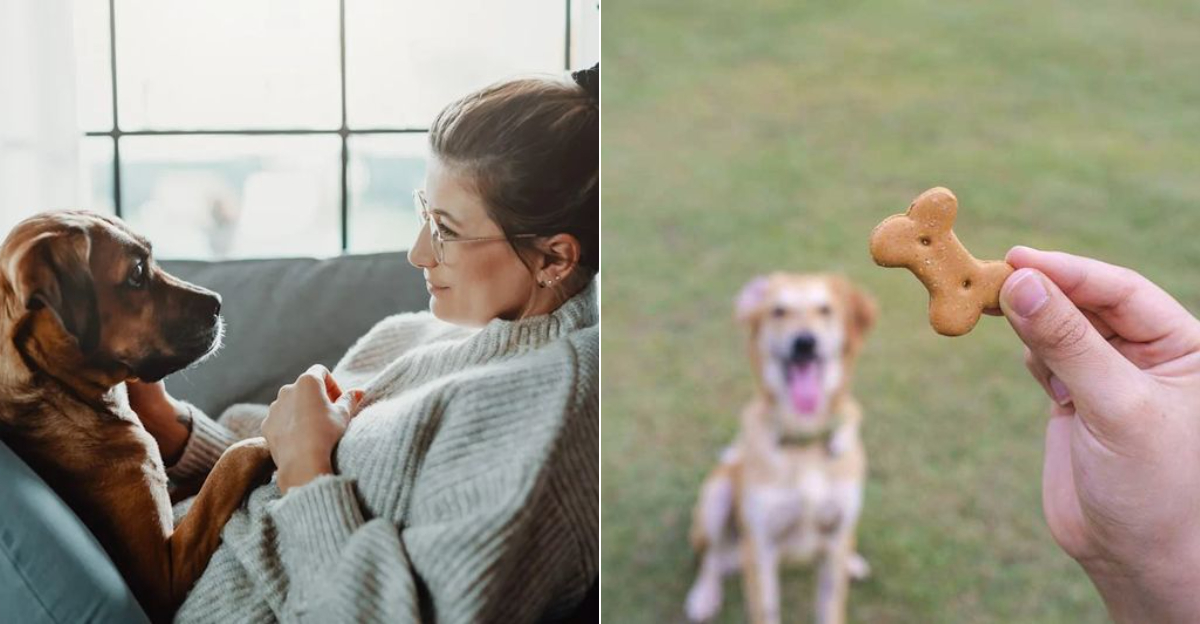Dog training can feel like a maze of conflicting advice, especially for Texas pet owners facing our unique climate and lifestyle challenges.
Between old wives’ tales passed down through generations and questionable tips from well-meaning neighbors, it’s easy to get confused about the right approach.
Understanding what works (and what doesn’t) can make all the difference in building a happy relationship with your four-legged friend.
1. The ‘Alpha Dog’ Fallacy
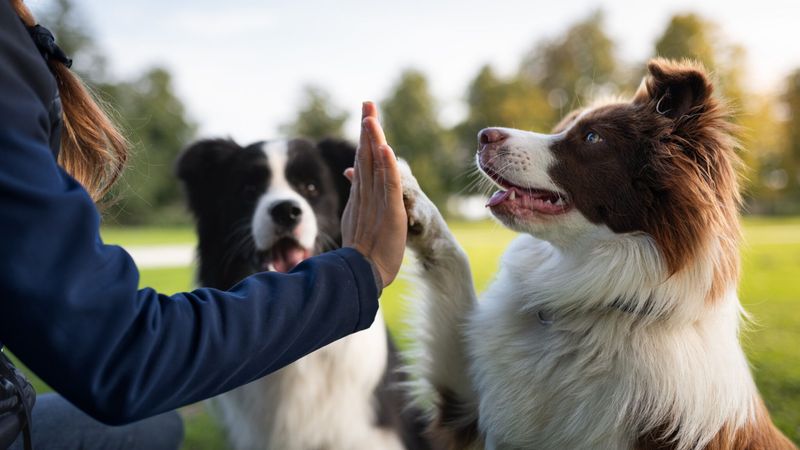
Forget the notion that you need to physically dominate your pup to earn respect. This outdated myth stems from misinterpreted wolf studies that don’t even apply to domesticated dogs. Modern research shows wolves actually function as family units, not tyrannical hierarchies.
Dogs respond best to clear communication and positive reinforcement, not intimidation tactics. When you establish yourself as a trusted leader through consistency and fairness, your dog naturally follows your guidance.
Texas dog trainers increasingly recommend relationship-based training approaches that build confidence rather than fear. Your furry friend wants to please you, no growling or alpha rolls required!
2. One-Size-Fits-All Training Doesn’t Work
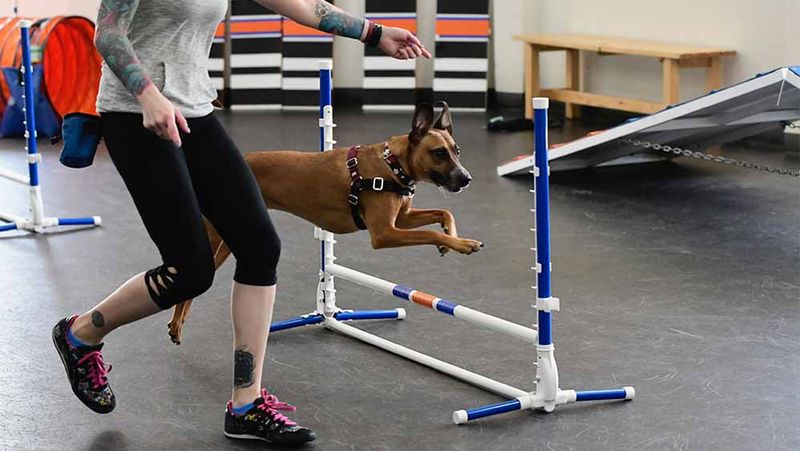
Y’all wouldn’t expect every child to learn the same way, so why assume every dog will? Each pup brings their own personality, breed tendencies, and learning style to the table. A Border Collie might thrive with complex commands while your Basset Hound needs a different approach entirely.
Texas weather throws another wrench in the works, training outdoors in August heat requires different strategies than winter sessions. Smart pet parents adapt their methods based on their dog’s individual needs and responses.
Professional trainers in Dallas, Houston, and Austin all agree: flexibility matters more than rigid adherence to any single training philosophy. The best approach combines techniques tailored to your specific dog.
3. The Guilt Myth

That “guilty look” when you discover a chewed-up boot isn’t what you think! Your dog isn’t experiencing remorse, they’re actually responding to your tone and body language. Dogs live in the moment and can’t connect your current anger to something they did hours ago.
What looks like guilt is actually fear or submission. When you come home to destruction and your pup cowers, they’re reacting to your disappointment right now, not feeling bad about past behavior.
Instead of scolding after the fact, Texas trainers recommend setting your dog up for success with proper supervision and environmental management. Prevention beats punishment every time for our beloved canine companions!
4. Nose-Rubbing Teaches Nothing

Bless your heart if someone told you rubbing your dog’s nose in accidents helps with potty training! This cruel old practice accomplishes nothing except teaching your dog to fear you. Dogs can’t connect this punishment with the actual mistake, especially after the fact.
Successful house training comes from positive reinforcement and consistency. When your pup eliminates outdoors, praise them like they’ve just won the Texas State Fair blue ribbon! For accidents, simply clean thoroughly with enzymatic cleaners without scolding.
Given our hot Texas climate, puppies often need more frequent bathroom breaks than folks realize. Patience, vigilance, and rewarding success creates reliable potty habits without damaging your relationship.
5. Treats Aren’t Bribes, They’re Paychecks
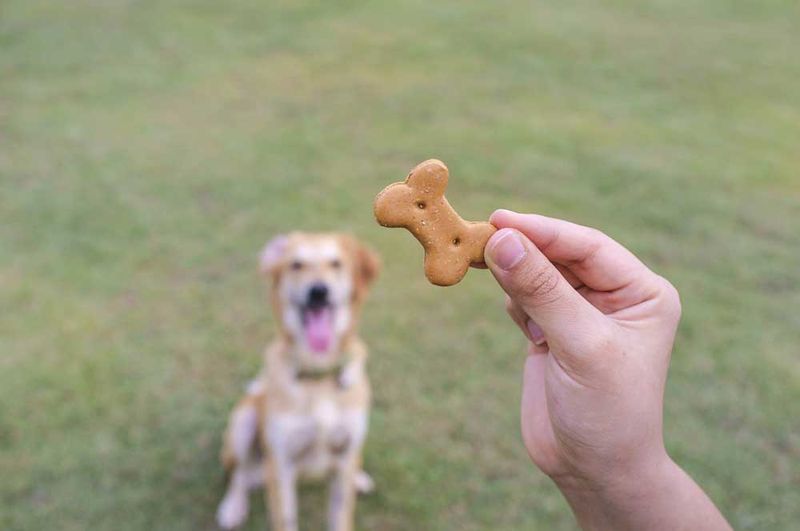
Hold your horses before dismissing food rewards as mere bribery! Would you go to work without expecting a paycheck? Training treats are your dog’s salary for a job well done, not manipulative bribes.
Strategic food rewards help dogs understand exactly which behaviors earn praise. The Houston SPCA and other Texas shelters rely heavily on treat-based training to rehabilitate rescue dogs and prepare them for adoption.
Over time, you’ll naturally transition to intermittent rewards and praise. But even professional trainers keep treats handy for teaching new skills or reinforcing behaviors in challenging environments.
6. Senior Dogs Can Learn Plenty
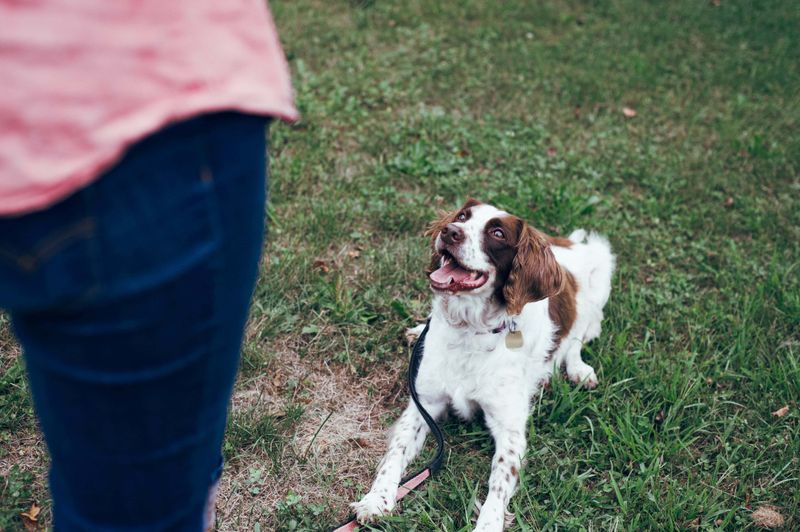
“You can’t teach an old dog new tricks” might be the most harmful myth on this list! Senior dogs are absolutely capable of learning, they sometimes just need different teaching approaches. My neighbor’s 12-year-old Lab just mastered a dozen new commands despite his arthritic joints.
Older dogs often have longer attention spans and more self-control than puppies. The Texas Humane Heroes adoption center regularly showcases senior dogs performing impressive new skills to encourage their adoption.
Training sessions may need to be shorter to accommodate physical limitations, but don’t underestimate your older companion’s cognitive abilities. Senior dogs thrive with mental stimulation, and learning new tricks can actually help keep their minds sharp as they age.
7. Crate Training Isn’t Cruel

While dogs aren’t strictly den animals, most appreciate having their own secure space. A properly introduced crate becomes your pup’s personal sanctuary and not punishment.
During scorching Texas summers, a crate can provide a cool retreat from the heat. The key is positive association: never use the crate for punishment, keep experiences inside pleasant, and ensure it’s appropriately sized.
Austin Pets Alive and other Texas rescues successfully use crate training to help dogs feel secure and reduce anxiety. When done correctly, crates provide safety, aid in housebreaking, and give your furry friend their very own Texas-sized personal space to relax.
8. Shock Collars Create Problems, Not Solutions

Electric shock collars might seem like a quick fix, but they’re about as welcome as fire ants at a picnic. These devices can create fear, anxiety, and aggression, exactly the opposite of what good training accomplishes. Many dogs trained with shock collars develop behavioral problems worse than what you started with.
Texas veterinary behaviorists overwhelmingly recommend positive reinforcement alternatives. The Dallas-Fort Worth Humane Society has documented numerous cases of dogs requiring rehabilitation after shock collar use.
With our state’s abundant wildlife and outdoor activities, reliable recall is essential, but it can be achieved through consistent positive training. Force-free methods build trust and cooperation rather than compliance based on fear of punishment.
9. Bed Privileges Don’t Diminish Respect

Who started the tall tale that dogs sleeping on your bed leads to disrespect? This myth has zero scientific backing! Whether your pup sleeps on your memory foam mattress or their own doggy bed has absolutely no impact on their obedience or respect for you.
Many Texas families share beds with well-behaved, respectful dogs. What truly matters is consistency in your training, boundaries, and expectations throughout the day, not sleeping arrangements.
During those rare Texas cold snaps, there’s nothing cozier than snuggling with your four-legged heater! The choice should be based on your preferences and sleep quality, not outdated dominance theories. If you enjoy your dog’s company at night and everyone sleeps well, there’s no training reason to kick them to the floor.
